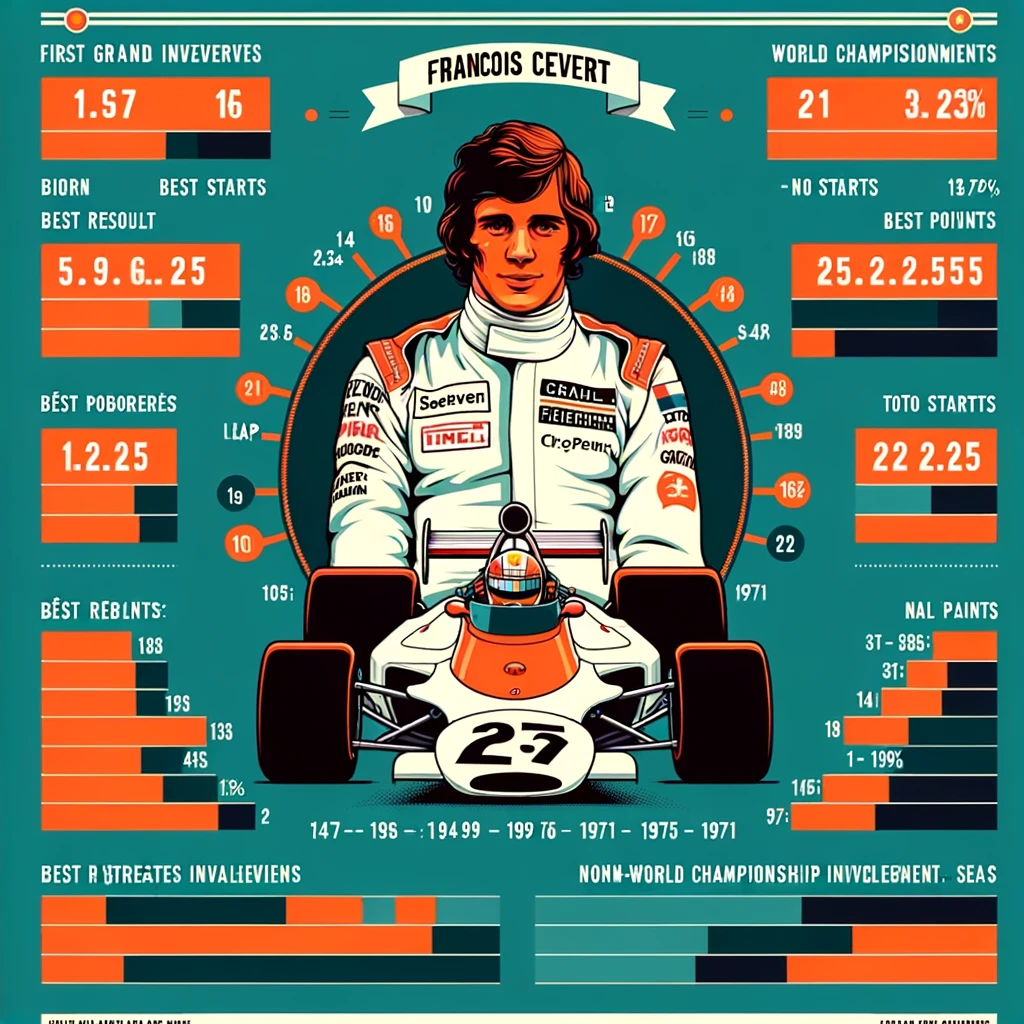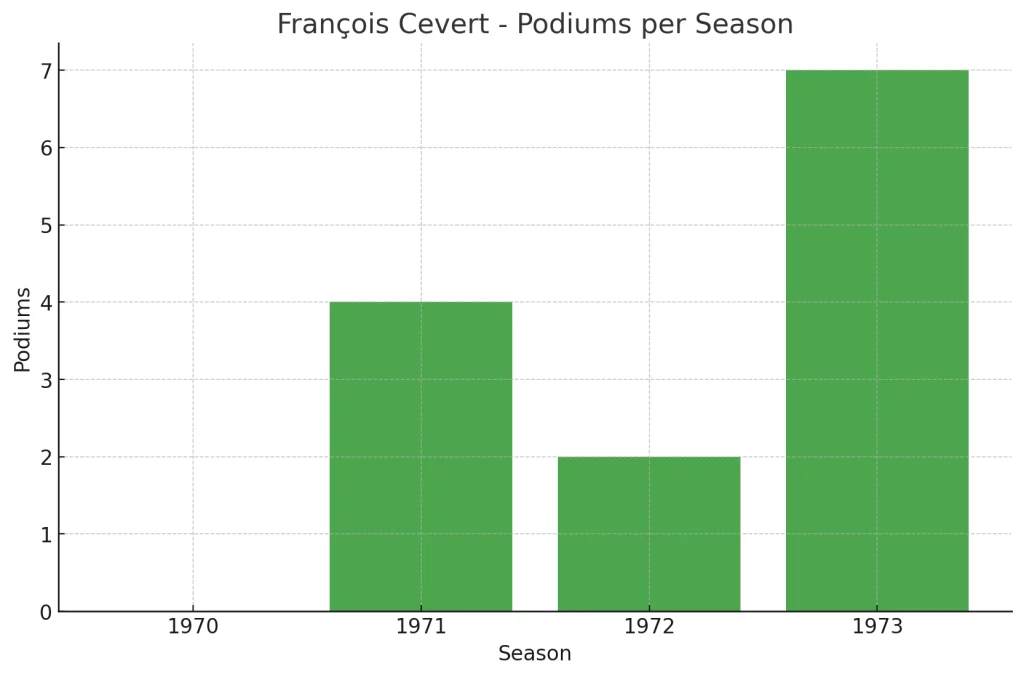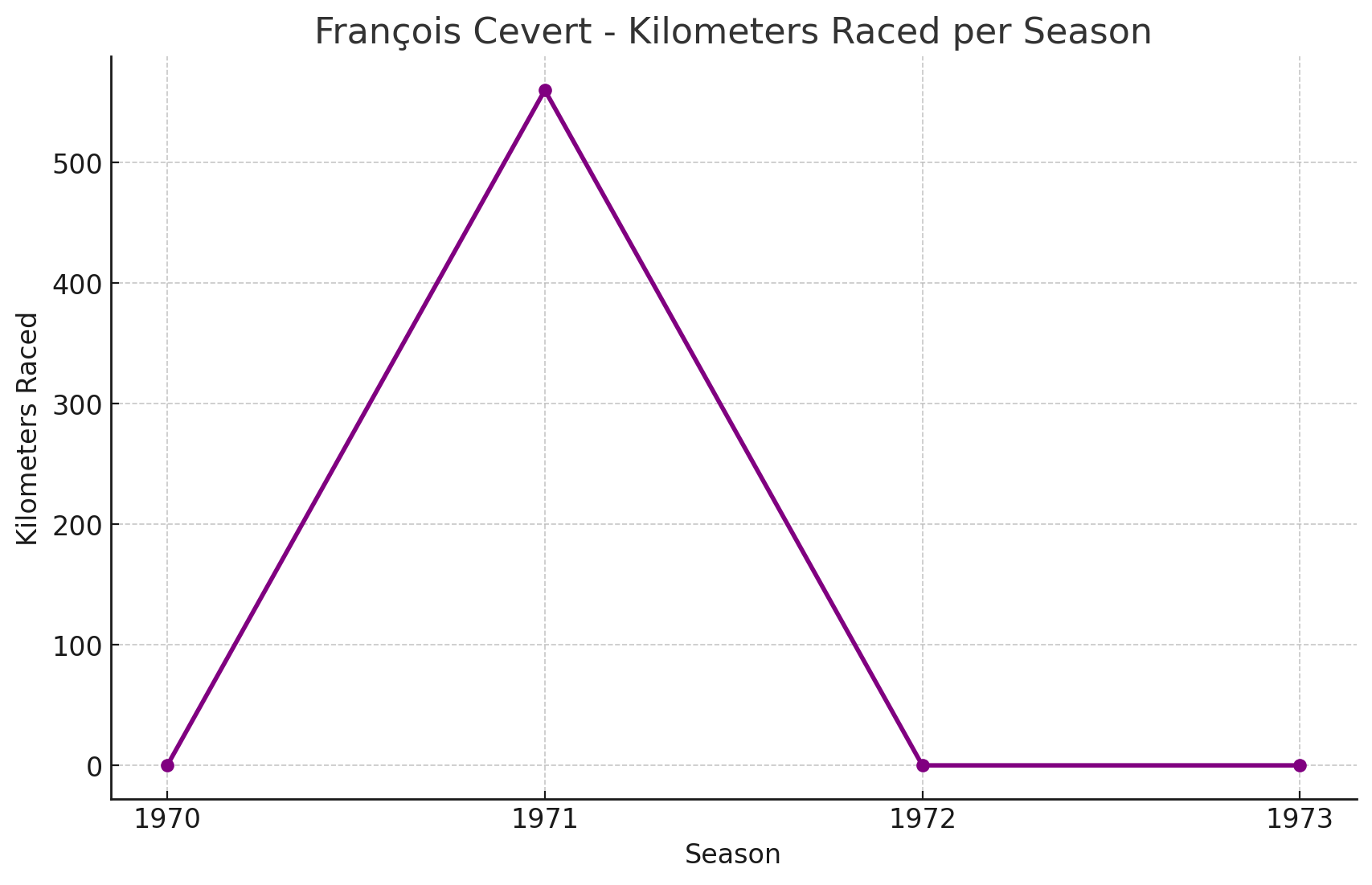Albert François Cevert
François Cevert: A Detailed Formula 1 Profile
Early Life and Career Beginnings
Albert François Cevert, born on February 25, 1944, in Paris, France, was a promising Formula 1 driver whose career and life were tragically cut short. Before venturing into motorsport, Cevert pursued a career in music, showing a keen interest in playing the piano and saxophone. However, his path changed when he discovered his passion for racing.
Family Background
Cevert was the son of Charles Goldenberg, a jeweler, and Huguette Cevert. His father, a Russian-Jewish immigrant, had moved to France to escape persecution. During World War II, Charles joined the French Resistance to avoid deportation. To avoid attention, François and his siblings were registered with their mother’s surname, Cevert.
Entry into Motorsport
Cevert began his racing career in motorcycles, participating in various events across France. His transition to car racing came after completing his military service. In 1966, he enrolled in the Winfield Racing School at Magny-Cours, where his talent quickly became apparent. Winning the Volant Shell scholarship at the school was a turning point, providing him with an Alpine Formula Three car for his first season in Formula 3.

Albert François Cevert
Formula 3 Success and Move to Formula 2
Cevert’s initial foray into Formula 3 was challenging due to a lack of funds and experience. However, his fortunes changed in 1968. With better sponsorship and a switch to a Tecno car, he started to win races, ultimately clinching the French Formula 3 Championship. This victory opened doors for him in Formula 2, where he competed for Tecno and finished third in the European championship in 1969.
Stepping into Formula 1
Cevert’s Formula 1 debut came in 1970, with Ken Tyrrell choosing him as Jackie Stewart’s teammate at Tyrrell Racing Organisation. His first season in F1 was modest, but in 1971, Cevert’s talent began to shine. He secured his first F1 victory at the United States Grand Prix at Watkins Glen, making him only the second Frenchman to win a Formula One World Championship Grand Prix.
Rise to Prominence in Formula 1
Cevert continued to excel in Formula 1 over the next two years. In 1972, he finished in the points several times, including two second-place finishes. The following year, Cevert achieved six second-place finishes and was positioned as a leading contender for the 1974 season.

Albert François Cevert
Laps Led per Season: Shows the number of laps Cevert led in each of his F1 seasons.





